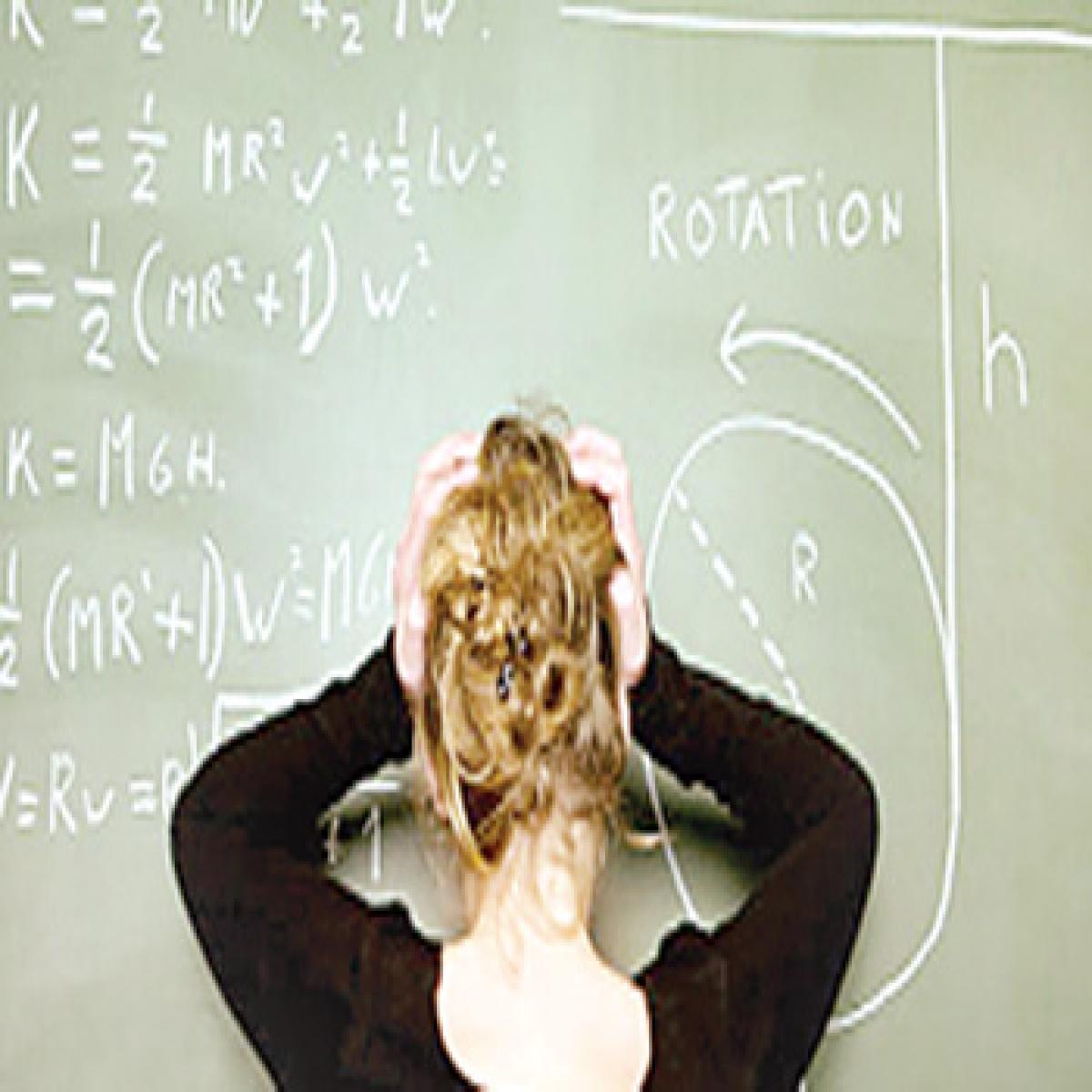Women who date intelligent men likely to hate Maths

All women please take note! If you hate mathematics and science, look if you have an intelligent and smart partner as there may be a link between the two, finds an interesting study.The women who were part of the research performed worse in a math test and tended to show less identification with math and less interest in science, technology, engineering and math (STEM) careers.
All women please take note! If you hate mathematics and science, look if you have an intelligent and smart partner as there may be a link between the two, finds an interesting study.The women who were part of the research performed worse in a math test and tended to show less identification with math and less interest in science, technology, engineering and math (STEM) careers.
"What we found is that not all women reacted equally to these romantic goal primes," said lead study author Lora Park from the University at Buffalo in the US. "Women who had a traditional romantic partner preference of wanting to date someone smarter than themselves were the ones who distanced themselves the most from STEM fields when they thought about romantic goals," Park added in the paper published in the Journal of Applied Social Psychology.
The finding suggests that the incompatibility may be most pronounced for women who prefer partners of greater intelligence.It involved more than 900 participants that established a link between a preference for dating smarter partners and traditional gender roles.
Participants did not show less interest in careers often considered feminine, such as those in social work or elementary education. The results suggested that each activated a romantic goal and a pattern emerged that showed worse math performance, less identification with math and less interest in STEM careers for those women with traditional romantic partner preferences.
Women show greater preference for dating smarter partners compared to men and the more they endorsed this preference the more traditional they were in their gender roles. "It's interesting that women who didn't have this partner preference tended to show better STEM outcomes, suggesting the more non-traditional preference might contribute to greater interest in STEM," Park suggested.










